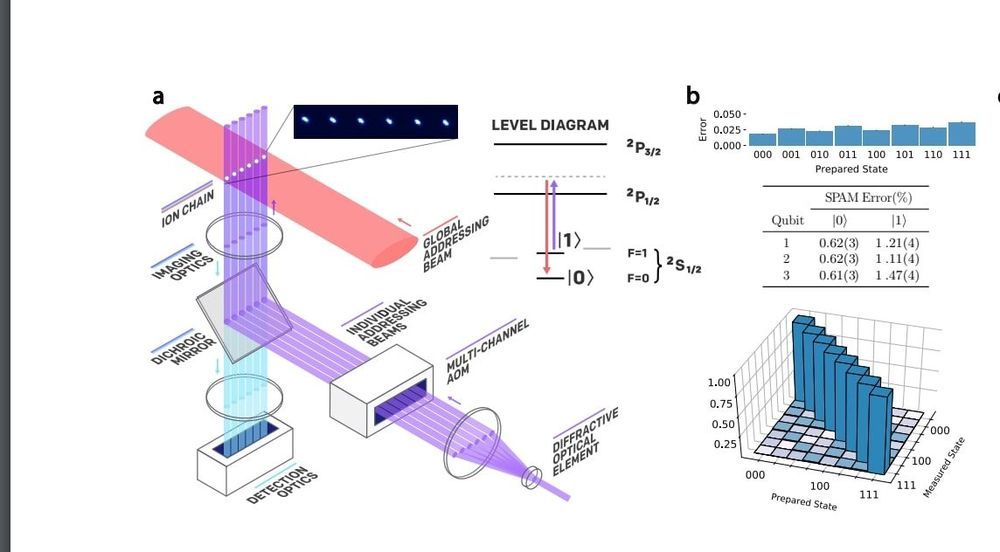Forget government-issued food pyramids. Let an algorithm tell you how to eat.
Credit Credit Erik Blad

Forget government-issued food pyramids. Let an algorithm tell you how to eat.
Credit Credit Erik Blad
» Download all images (ZIP, 59 MB)
What’s New: Intel is hosting its first artificial intelligence (AI) developer conference in Beijing on Nov. 14 and 15. The company kicked off the event with the introduction of the Intel® Neural Compute Stick 2 (Intel NCS 2) designed to build smarter AI algorithms and for prototyping computer vision at the network edge. Based on the Intel® Movidius™ Myriad™ X vision processing unit (VPU) and supported by the Intel® Distribution of OpenVINO™ toolkit, the Intel NCS 2 affordably speeds the development of deep neural networks inference applications while delivering a performance boost over the previous generation neural compute stick. The Intel NCS 2 enables deep neural network testing, tuning and prototyping, so developers can go from prototyping into production leveraging a range of Intel vision accelerator form factors in real-world applications.
“The first-generation Intel Neural Compute Stick sparked an entire community of AI developers into action with a form factor and price that didn’t exist before. We’re excited to see what the community creates next with the strong enhancement to compute power enabled with the new Intel Neural Compute Stick 2.” –Naveen Rao, Intel corporate vice president and general manager of the AI Products Group

Over the last three years, Google and Verily—Alphabet’s life sciences and healthcare arm—have developed a machine learning algorithm to make it easier to screen for disease, as well as expand access to screening for DR and DME. As part of this effort, we’ve conducted a global clinical research program with a focus on India. Today, we’re sharing that the first real world clinical use of the algorithm is underway at the Aravind Eye Hospital in Madurai, India.
Google and Verily share updates to their initiative to diagnose diabetic eye disease leveraging machine learning.
A team of researchers at The University of Cambridge has recently introduced a unique experimental testbed that could be used for experiments in cooperative driving. This testbed, presented in a paper pre-published on arXiv, consists of 16 miniature Ackermann-steering vehicles called Cambridge Minicars.
“Using true-scale facilities for vehicle testbeds is expensive and requires a vast amount of space,” Amanda Prorok. “Our main objective was to build a low-cost, multi-vehicle experimental setup that is easy to maintain and that is easy to use to prototype new autonomous driving algorithms. In particular, we were interested in testing and tangibly demonstrating the benefits of cooperative driving on multi-lane road topographies.”
Studies investigating cooperative driving are often expensive and time consuming due to a lack of available low-cost platforms that researchers can use to test their systems and algorithms. Prorok and her colleagues thus set out to develop an effective and inexpensive experimental testbed that could ultimately support research into cooperative driving and multi-car navigation.

IonQ used its trapped-ion computer and a scalable co-design framework for solving chemistry problems. They applied it to compute the ground-state energy of the water molecule. The robust operation of the trapped ion quantum computer yields energy estimates with errors approaching the chemical accuracy, which is the target threshold necessary for predicting the rates of chemical reaction dynamics.
Quantum chemistry is a promising application where quantum computing might overcome the limitations of known classical algorithms, hampered by an exponential scaling of computational resource requirements. One of the most challenging tasks in quantum chemistry is to determine molecular energies to within chemical accuracy.
At the end of 2018, IonQ announced that they had loaded 79 operating qubits into their trapped ion system and had loaded 160 ions for storage in another test. This new research shows that they are making progress applying their system to useful quantum chemistry problems. They are leveraging the trapped-ions system longer stability to process many steps. The new optimization methods developed for this first major quantum chemistry problem can also be used to solve significant optimization and machine learning problems.

Researchers at Tel Aviv University say they have developed a new, noninvasive method of discovering genetic disorders that can let parents find out the health of their fetus as early as 11 weeks into pregnancy.
A simple blood test lets doctors diagnose genetic disorders in fetuses early in pregnancy by sequencing small amounts of DNA in the mother’s and the father’s blood. A computer algorithm developed by the researchers analyzes the results of the sequencing and then produces a “map” of the fetal genome, predicting mutations with 99 percent or better accuracy, depending on the mutation type, the researchers said in a study published Wednesday in Genome Research.
The algorithm is able to distinguish between the genetic material of the parents and that of the fetus, said Prof. Noam Shomron of Tel Aviv University’s Sackler School of Medicine led the research, in a phone interview with The Times of Israel.

Fake. Dangerous. Scary. Too good. When headlines swim with verdicts like those then you suspect, correctly, that you’re in the land of artificial intelligence, where someone has come up with yet another AI model.
So, this is, GPT-2, an algorithm and, whether it makes one worry or marvel, “It excels at a task known as language modeling,” said The Verge, “which tests a program’s ability to predict the next word in a given sentence.”
Depending on how you look at it, you can blame, or congratulate, a team at California-based OpenAI who created GPT-2. Their language modeling program has written a convincing essay on a topic which they disagreed with.

Circa 2014
Scientists may soon create matter entirely from light, using technology that is already available to complete a quest 80 years in the making.
The experiment would re-create events that were critical in the first 100 seconds of the universe and that are also expected to happen in gamma-ray bursts, the most powerful explosions in the cosmos and one of the greatest unsolved mysteries in physics, researchers added.
As Einstein’s famous equation E=mc proved, mass can get converted into energy and vice versa. For instance, when an electron meets its antimatter counterpart, a positron, they annihilate each other, releasing photons, the particles making up light.

The Longevity Therapeutics Summit was focused on therapeutics that target aging, rather than basic research or theory.
This was the first year for the Longevity Therapeutics Summit in San Francisco, California. Ably organized by Hanson Wade, with John Lewis, CEO of Oisín Biotechnologies, as program chair, the conference focused on senolytics for senescent cell clearance, big data and AI in finding new drugs (“in silico” testing), delivery systems for therapeutics like senolytics, TORC1 drugs, and biomarkers of aging, and the challenges of clinical trial development and FDA approval.
The conference featured a smorgasbord of cutting-edge longevity research, and, as the name implies, the general focus was on therapeutics that target aging, rather than basic research or theory.
Ned David, CEO of Unity Biotechnology, kicked off the conference with a talk about the company’s latest research on senolytics, which clear away senescent (“zombie”) cells, which secrete harmful chemicals that can cause neighboring cells to also become senescent. Unity has made the news recently with an extension request for its clinical trial of its first-in-class senolytics for osteoarthritis. Its preliminary Phase 1 clinical trial results were deemed “safe,” a major step in obtaining FDA approval, and the full results will be available later this year or in 2020.
